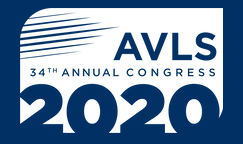By Larry Storer
Five-year results from the 2019 VeClose Extension Study of the Medtronic VenaSeal Closure System demonstrate that the treatment modality is consistent, durable and safe for permanently closing veins in patients with venous reflux disease. When compared with Medtronic Radiofrequency Ablation, VenaSeal continued to show “non-inferiority” with a 6.2 percent higher rate of vein closure over the five years in the study.
With no need for heat, the VenaSeal Closure System procedure delivers a proprietary medical adhesive to close off lower extremity superficial truncal veins, such as the great saphenous vein (GSV), with chronic venous insufficiency and varicose veins, resulting in a comfortable patient experience and immediate permanent vein closure that is non-thermal, non-tumescent and non-sclerosant.
Nick Morrison, MD, of the Center for Vein Restoration in Mesa, Arizona, presented the five-year outcomes from the VeClose Extension Study at the 2019 Charing Cross Symposium in London in April. He said VeClose results demonstrate the safety, consistent, effective and quality of life-enhancing capability of VenaSeal.
BUILDING CLINICAL EVIDENCE
The original VeClose Study was a U.S. pivotal clinical trial that was conducted under an investigational device exemption (IDE) as a prospective, randomized, controlled trial comparing the safety and effectiveness of the VenaSeal Closure System to the Medtronic ClosureFast radiofrequency ablation (RFA) device.

The 2019 VeClose Extension Study is a follow-on study with the purpose of evaluating long-term outcomes at five years post-treatment with the VenaSeal Closure System.
The aggregate complete closure rate of the GSV was 94.6 percent (53/56) in the VenaSeal subjects who completed five-year follow-up, including 47 randomized subjects and nine roll-in subjects.
By Kaplan-Meier analysis of the randomized cohorts to evaluate success over the life of the study through five years, vein closure estimates were 91.4 percent for VenaSeal and 85.2 percent for RFA, “demonstrating continued non-inferiority of VenaSeal to RFA through five years.”
“In the Veclose trial, we sought to establish non-inferiority of the VenaSeal method of venous ablation compared to the current endovenous therapeutic gold standard, thermal ablation by radiofrequency energy,” Dr. Morrison explained.

“The number of patients recruited were enough to potentially establish non-inferiority of the VenaSeal method. Because the ablation success of both RFA and VenaSeal ablation is so high, it would have required much larger numbers of randomized subjects to establish superiority.
“While on first glance it appears that VenaSeal is superior to RFA, the difference between the two methods is not statistically significant and it would be therefore misleading to claim superiority of VenaSeal.”
Patient improvement was rated on three assessments: Venous Clinical Severity Score (VCSS), a clinical venous disease assessment; and the Aberdeen Varicose Vein Questionnaire (AVVQ) and EQ-5D – both of which provide patient-reported quality of life (QoL) outcomes.
By all measurements, subjects sustained or maintained improvements in QoL after treatment with either VenaSeal or RFA. These first prospective five-year data for VenaSeal demonstrate a strong clinical portfolio with sustained long-term outcomes.
“The five-year data support the safety, effectiveness and quality of life-enhancing capability of both VenaSeal and ClosureFast in treating patients with chronic venous disease,” Dr. Morrison said.
“Furthermore, the data demonstrate long-term, strong and consistent outcomes. The industry will benefit from long-term data like this so that physicians and patients can be confident in their treatment choice.
“Whenever a new treatment modality for venous disorders appears, the physicians want first to see preliminary safety data and short-term efficacy data. But the most important outcome they are interested in is long-term safety and efficacy – in other words, durability.
“So in the case of newer venous therapeutic modalities, [what physicians want to know] is the modality safe and does it remain successful in the long term,” Dr. Morrison continued.
“And 5-year results are one of the most important intervals to demonstrate safety and long-term efficacy. This study presents strong evidence that VenaSeal is, in fact, safe and durable.”
VeClose Study outcomes have been previously reported, and the study has since concluded. Dr. Morrison also presented the 36-month VeClose outcomes at the International Vein Congress in 2017 with 94.4 percent closure rate for VenaSeal.
LONG-TERM COMMITMENT
Sandra Lesenfants, vice president and general manager of the endoVenous business, which is part of the Aortic, Peripheral, and Venous division at Medtronic, said the Medtronic commitment to long-term clinical evidence and improving patient outcomes is underscored by the release of this five-year VeClose Extension Study data.
“VenaSeal has already been used in more than 100,000 procedures and that number is growing daily,” she said. “We want to continue to expand minimally invasive innovation to improve the quality of life for all patients with venous disease.”
In collaboration with leading clinicians, researchers and scientists worldwide, Medtronic offers the broadest range of innovative medical technology for the interventional and surgical treatment of cardiovascular disease and cardiac arrhythmias.
Lesenfants said the company strives to offer products and services of the highest quality that deliver clinical and economic value to healthcare consumers and providers around the world. VTN


